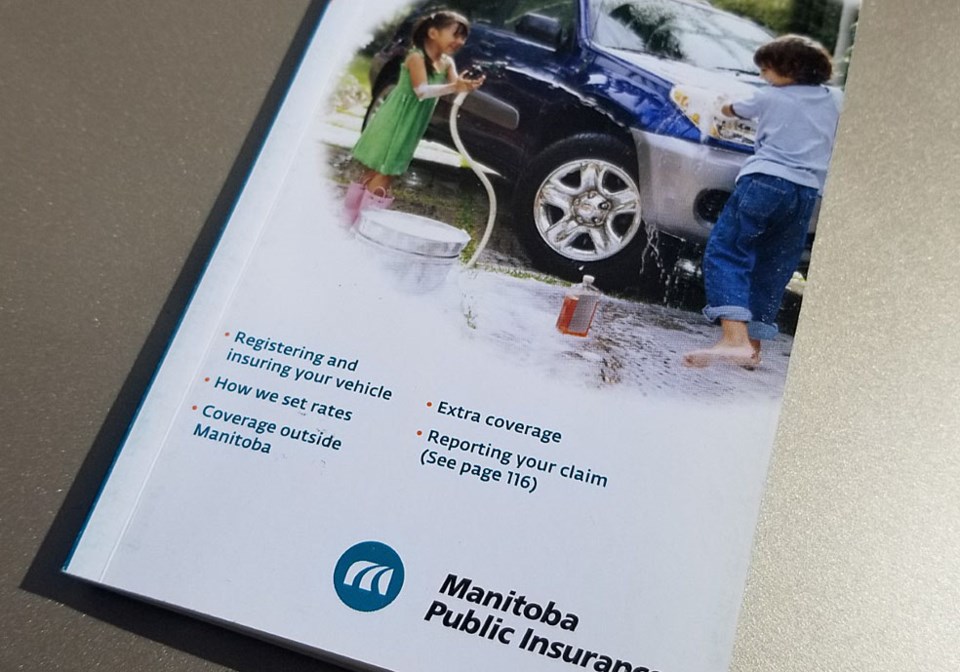Autobody shops accredited by Manitoba Public Insurance have been at odds with the public insurance corporation since last November. As of March 15, MPI cancelled their agreement with the repair centres when the associations representing repair shops suggested arbitration.
MPI ended the agreement one month early and requested individual shops to sign a new deal by April 15.
The repair shops represented by the Automotive Trades Association (ATA) and Manitoba Motor Dealers Association (MMDA) obtained a court document to stall the demand for signing onto an agreement until June 13, providing time for more negotiations.
However, MPI does not want to work with the associations, but is asking the individual shops to sign new agreements. Meanwhile the trades associations hope the body shops will stick together and maintain solidarity in bargaining. Last week ATA Executive Director Steve Dennis said about eight of 232 shops had agreed to sign early.
Brian Smiley, MPI spokesperson said, “The trades presented us with an offer, which if we accepted… we would be proposing a double digit increase to the Public Utilities Board when we submit our general rate application.”
Dennis said MPI accredited autobody shops want parity with Saskatchewan rates (SGI), a particularly meaningful request for shops in communities like Virden, near the Saskatchewan border.
SGI provides shop rates are about $92 per hour. In Manitoba the shop rate sanctioned by MPI has been about $74 without a raise for five years.
Dennis said, “So, you’ve got repair shops under SGI that get 20 per cent more. It’s 20 per cent cheaper to insure your car there. SGI two months ago issued a $285 rebate to every vehicle in the province.” He acknowledged that Saskatchewan has a $750 deductible, “but we will be going to that as well, soon.”
Smiley said, “The Manitoba shops are getting the second highest rate in Canada, behind Saskatchewan.” Saskatchewan and the Insurance Corp of BC are non-profit public utilities while Quebec is a quasi-public insurance system.
“We are going to be dealing directly with the shops, which is common business in many jurisdictions. At this point we have more than 100 who have agreed to deal directly with MPI.”
Dennis, who previously owned a dealership in Neepawa, said that Manitoba, pre-pandemic, had already lost seven collision repair shops to closures.
He pointed out that an automotive repair shop adds value to a town. “Rural shops are very important to the community. Most of our communities are less than 10,000 people.”
Body shop owners have pointed to ongoing expenses for continuing education and new equipment demands by the industry.
Smiley agreed, saying, “The industry has changed dramatically in terms of the new vehicles that are coming out from the manufacturers, with what we call complex materials of aluminum base and other materials such as that which cannot be repaired as per the old traditional autobody repair.”
He said, “Staff would have to undergo specialized training and buy specialized repair tools. There’s also requirements with respect to the paint booths…”
He said closures are business decisions by the shop owners and could reflect people wanting to retire, or a lack of work, or more competition.
We’re offering a rate increase of 6.7 per cent over two years to the shops. It’s not as if we’re not offering a raise to the shops but the raise is not high enough for the trades which resulted in the impasse we’re at right now.
“We believe that we’re paying a fair trade rate.”
Dennis thinks it’s important for the shops to continue negotiate through the association reps. “A rural shop doesn’t have the ability to come into Winnipeg and attend meetings and negotiate his own deal.
“We need to get paid to repair the vehicles properly and we need to get paid for everything we do.”
He adds, “We’re in a bit of unchartered waters here. We’ve always been able to make an agreement for the past 50 years. We’ve managed to get protection from the courts so its status quo but… we’re working with the situation as it progresses. At this point we can still fix cars and function normally. We know we’ll find a way [to continue that.]”
Smiley said, “We will pay what we call accredited rates with those shops who have signed an agreement with MPI. After June 13, customers will need to be aware of who is accredited with MPI because the customer could possibly be looking at paying some money, based on the fact that the shops may charge them higher rates than what MPI is prepared to pay.
“At the end of the day, as a Crown Corporation we do not have to pay shareholders a dividend. We’ve given our customers rebates. If we were to accept the offer from the body shops, you and your neighbours will be paying more for your premiums.”




